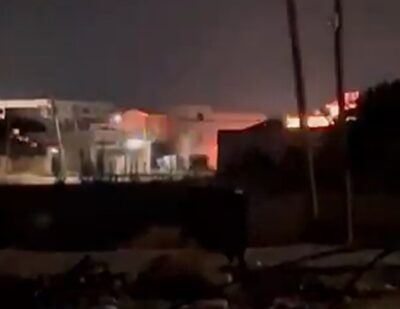Israeli occupation forces detonated a Palestinian home in the city of Tubas, in the occupied West Bank’s northeastern part, early Wednesday morning, escalating what rights groups describe as a systematic campaign of collective punishment across the occupied West Bank.
Before dawn, a large military convoy invaded the city, surrounded the residence of slain Palestinian Mohammad Daraghma, who was killed on February 4, 2025, and rigged it with explosives before detonating it.
He reportedly was behind a shooting attack that led to the killing of two Israeli soldiers, and eight injuries, before he was shot dead.
It is worth mentioning that in February of 2024, Mohammad’s brother, Ahmad, was killed by Israeli soldiers in Tubas.
The house, belonging to his family, was destroyed; eyewitnesses reported that soldiers blocked surrounding roads, barred residents from approaching, and maintained a heavy presence throughout the operation.
This demolition follows the destruction of two homes in the nearby town of Aqaba just a day earlier, part of a broader pattern of illegal acts of collective punishment targeting families of Palestinians killed or detained by Israeli forces.
These measures include home demolitions, mass raids, and the revocation of work permits for entire communities.
Legal experts and human rights organizations have condemned these actions as violations of international law, specifically Article 33 of the Fourth Geneva Convention, which prohibits collective punishment.
Palestinian officials have denounced the demolitions as war crimes and called on the international community to intervene.
Civil society groups in Tubas report heightened military presence, curfews, and restricted movement, affecting thousands of residents.
Legal observers warn that such demolitions not only violate international law but also fuel cycles of constant displacement and escalation.
The destruction of homes as a punitive measure continues to draw international scrutiny, especially as humanitarian conditions in Gaza and the West Bank deteriorate under siege, displacement, and military escalation.
Post navigation

